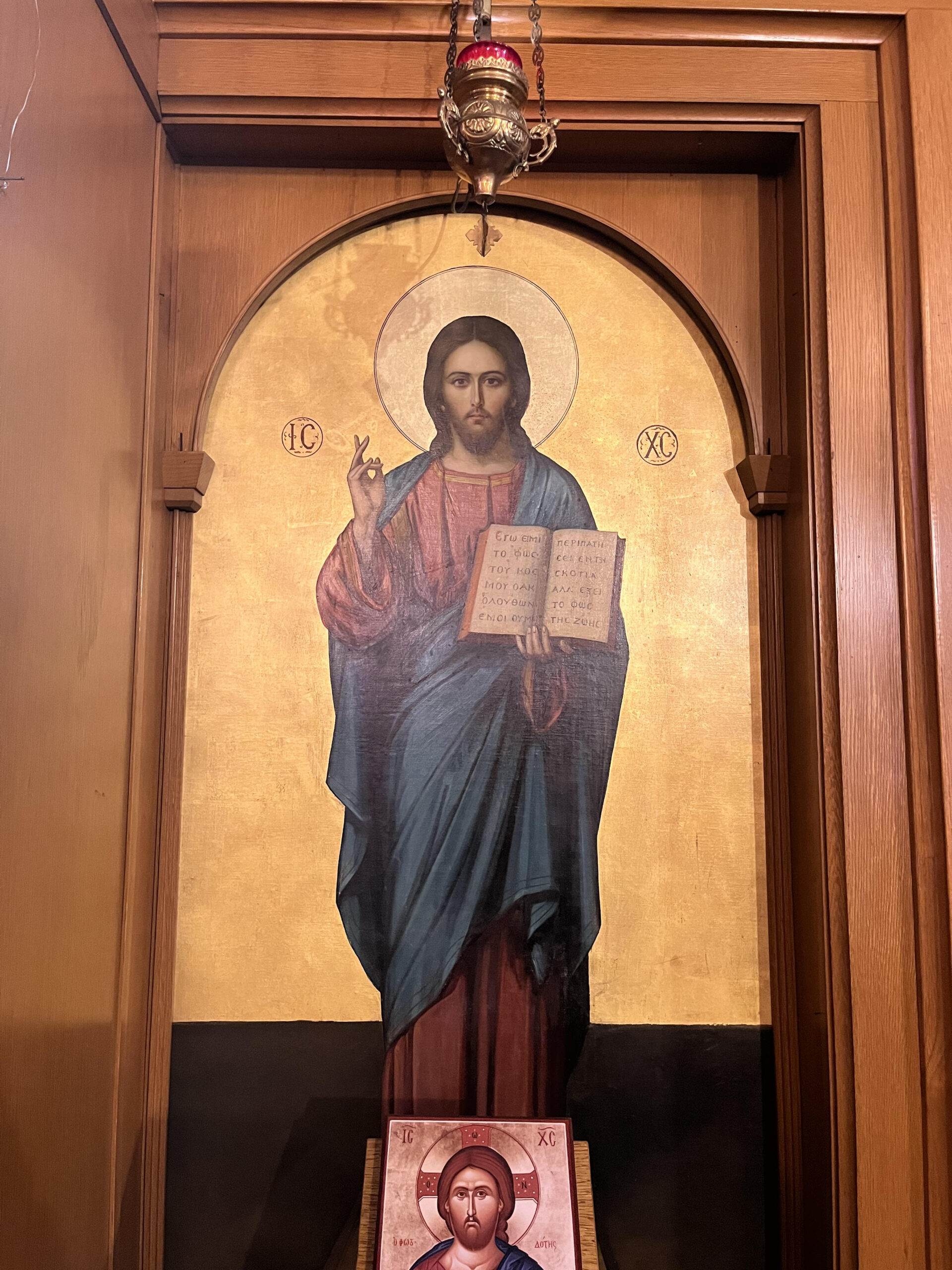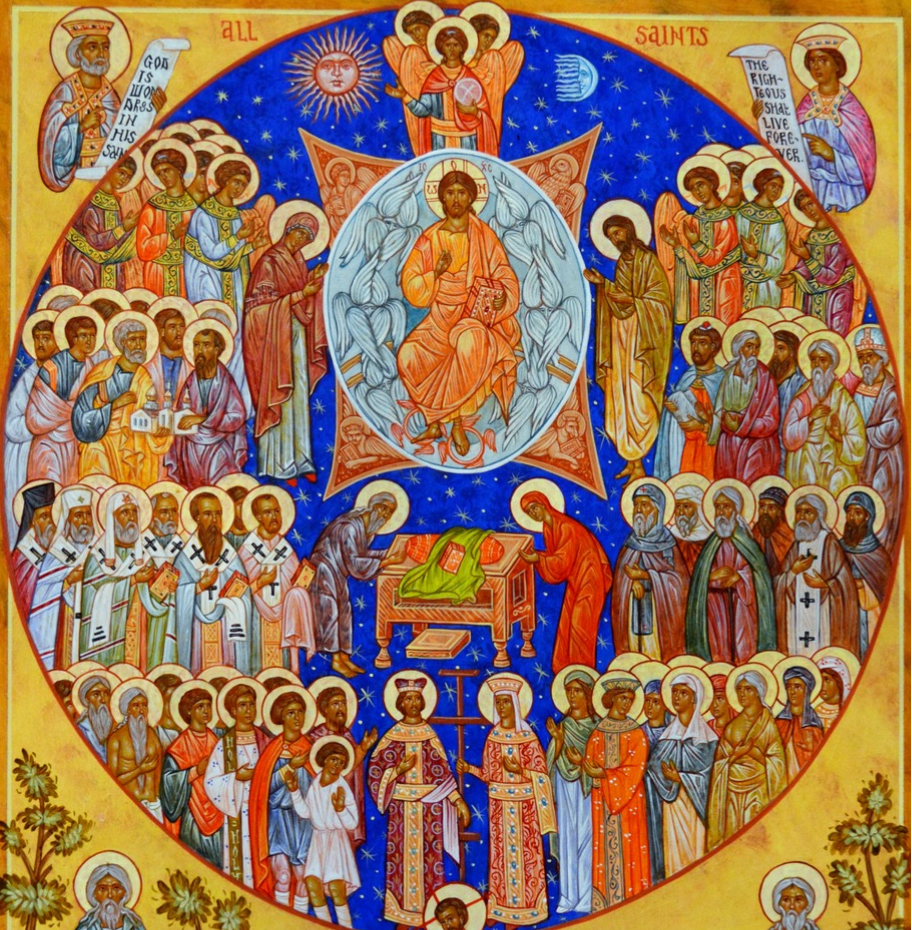Now when he heard that John had been arrested, he withdrew into Galilee; and leaving Nazareth he went and dwelt in Capernaum by the sea, in the territory of Zebulun and Naphtali, that what was spoken by the prophet Isaiah might be fulfilled: “The land of Zebulun and the land of Naphtali, toward the sea, across the Jordan, Galilee of the Gentiles—the people who sat in darkness have seen a great light, and for those who sat in the region and shadow of death light has dawned.” From that time Jesus began to preach, saying, “Repent, for the kingdom of heaven is at hand.” Matthew 4: 12-17 (Gospel of Sunday After Theophany)
Today’s Gospel lesson reflects the beginning of Christ’s earthly ministry. The message of Christ’s ministry was very simple: “Repent, for the kingdom of heaven is at hand.” (Matthew 4;17) Two very important things jump out at us from this verse. First is the word, “Repent.” To repent means to change orientation. In Greek, the word for “repent” is “metania.” “Metania” is also the word used to describe the liturgical action when the priest (and sometimes the people) reach down and touch the floor. It is called that because when touching the floor, (especially when saying the prayer “God be gracious to me a sinner and have mercy on me”) is an act of humility, it changes our orientation.
Repentance is not a one-time action, but rather a continuous action. Our life is supposed to be spent “repenting.” Repentance is not supposed to be a negative word, like “we’re supposed to spend out whole life feeling bad for our sins.” That is not what repentance is at all. Repentance is a continual “running” toward God, a sharpening of our hearts and souls so that we can better glorify Him. Repentance is a positive thing. More repentance doesn’t mean more sin. More repentance means more focus on God. One can even sin less frequently but repent more. Because the greater thirst for God makes one sadder over sin and more motivated to act with righteousness, rather than in sinful ways.
The basic message of Christ is for us to center on Him—our life, our purpose, our hope. What follows next is the motivation to repent, which is that the Kingdom of heaven is at hand. There are two meanings to this phrase. Christ came to earth to inaugurate the “Kingdom of heaven” both on earth and in heaven. Before the time of Christ’s earthly ministry, people were consigned to Hades and death at the end of their early lives. For as long as there were people, after the Fall of Adam and Eve, the journey through life was a journey to an end of darkness.
The coming of Christ changed that. Christ taught that after we die, those who believe will go to the Resurrection of life, a place of brightness, rest and peace.
Christ’s message went even further though. The Kingdom of heaven was not going to just be a far off destination, but with the coming of Christ, it is a PRESENT reality. We LIVE in the Kingdom NOW. This is why the Divine Liturgy begins with the words “Blessed is the Kingdom, of the Father and of the Son and of the Holy Spirit, NOW and forever and to the ages of ages.” We know that the Kingdom is forever. However, the Kingdom is also present NOW.
How is that? Because when we partake of Christ, either through Holy Communion, or through prayer, when we establish an “intimacy” with Christ, we will experience what heaven will be like. Heaven will be an eternal closeness with Christ. However, we can achieve this closeness in life, by developing a deeper relationship with the Lord.
Throughout the Gospels, we hear references to the Old Testament prophecies and how they are now fulfilled in the person of Jesus Christ. Today’s Gospel reading quotes the Prophecy of Isaiah, where he wrote “The land of Zebulun and the land of Napthali, toward the sea, across the Jordan, Galilee of the Gentiles—the people who sat in darkness have seen a great light, and for those who sat in the region and shadow of death light has dawned. (Matthew 4:15-16. This prophecy is fulfilled in the person of Christ, who came not only to call the Jews, His own people, to salvation, but to call the Gentiles (EVERYONE ELSE) as well. However, the call of Christ is to come to His Light. Oftentimes, when I read this verse, how those who sat in darkness saw a great light, I wonder if the phrase should read “the people who sat in darkness have seen a great light, and ran away from it,” or “The people who sat in darkness have seen a great light, but were content to stay in darkness. They did not desire to BE in the light.
God doesn’t want us sitting in darkness. He does not want us to be depressed about the “shadow of death.” Rather, He wants us to walk in the Light, to repent, to grow closer to Him, to enjoy an intimacy with Him right now, so that we can experience His Kingdom here, which in turn will motivate us to work for the Kingdom which is to come.
Light from Light, Christ our God, has shone upon the world. He is God and He appeared to us. O peoples, let us worship Him. (First Praise of the Feast of Theophany, Trans. by Fr. Seraphim Dedes)
Repent—orient yourself more sharply towards God today, and everyday!
These readings are under copyright and is used by permission. All rights reserved. These works may not be further reproduced, in print or on other websites or in any other form, without the prior written authorization of the copyright holder: Reading © Holy Transfiguration Monastery – Brookline, MA, Apolytikion of Abbot Marcellus © Narthex Press, Kontakion of Abbot Marcellus © Holy Transfiguration Monastery – Brookline, MA.
The Revised Standard Version of the Bible is copyrighted 1946, 1952, 1971, and 1973 by the Division of Christian Education of the National Council of the Churches of Christ in the U.S.A. and used by permission. From the Online Chapel of the Greek Orthodox Archdiocese of America.

